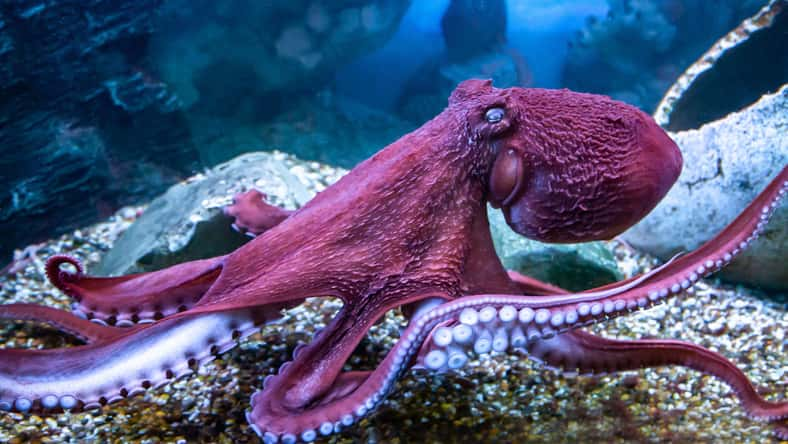A Spanish Seafood Company Is Trying To Open The World’s First Octopus Farm, With Plans To Harvest About 1 Million Octopuses Per Year, But Animal Welfare And Environmental Organizations Are Pushing Back

Octopuses are incredibly intelligent deep-sea creatures that possess a wide range of cognitive abilities.
They can adapt to diverse environments, display complex behaviors, and complete an array of sophisticated tasks, from solving puzzles and opening jars to escaping from aquariums. The octopus’s bizarre appearance and unusual abilities have captivated scientists, making it a fascinating subject of study.
So, when a Spanish seafood company known as Nueva Pescanova announced that they had set their sights on opening the world’s first octopus farm in Spain’s Canary Islands to harvest the animals for seafood, the plan met harsh criticism and resistance from animal rights organizations.
The idea isn’t totally far-fetched since octopus-based dishes are popular all over the globe. Throughout northern Africa, east Asia, and Europe, octopus is enjoyed both cooked and raw. In addition, demand for their meat is rising.
According to Nueva Pescanova, the market for global octopus consumption is expected to grow by 21.5 percent in 2028.
The company claims that an octopus farm would reduce fishing for wild populations. Their aim is to help conserve the species while providing the world with a culinary delicacy.
Still, the thought of a commercial octopus farm is sickening to many people, especially since there is evidence that the octopus is a sentient being capable of physical and emotional feelings.
Nueva Pescanova plans to build a two-story facility on approximately 567,000 square feet of land along a dock of Las Palmas.
The process of raising the octopuses involves feeding larvae a diet of seaweed after they are birthed. Juvenile octopuses will feast on crabs for six to 15 months. Then, they will be placed in communal tanks until they become adults, which is when they will be ready for slaughter and shipping.

Victor1153 – stock.adobe.com – illustrative purposes only, not the actual octopus
It is hoped that the farm will produce 3,000 tons of octopus each year. That amounts to the slaughter of around one million octopuses.
The company asserts they are committed to farming octopuses sustainably and responsibly by providing a suitable living environment for the animals, from lighting and temperature to water quality. But, regardless of the conditions at the farm, raising octopuses in captivity is incompatible with the way the species live and interact with each other.
The current method of slaughter planned to be used at the farm has also been called cruel and inhumane. Nueva Pescanova states that the octopuses will be submerged in ice-cold water before they are killed to avoid any pain or suffering. However, research shows that the method can cause severe pain and stress.
Another problem that comes with an octopus farm is the fact that they require other animals to eat, leading to more fishing. Furthermore, the octopus farm may introduce disease to the nearby ocean, putting wild octopus populations at risk.
In October 2023, several animal welfare groups and environmental organizations sent a letter to the government of the Canary Islands. They urged the government to stop the plan from moving forward, citing serious sustainability and animal cruelty issues associated with the farm’s development.
Currently, Nueva Pescanova’s plans face many barriers, such as the lack of proper permits and licenses. They are awaiting a decision to see if they will be allowed to start operations at the farm.
Sign up for Chip Chick’s newsletter and get stories like this delivered to your inbox.
More About:Animals





